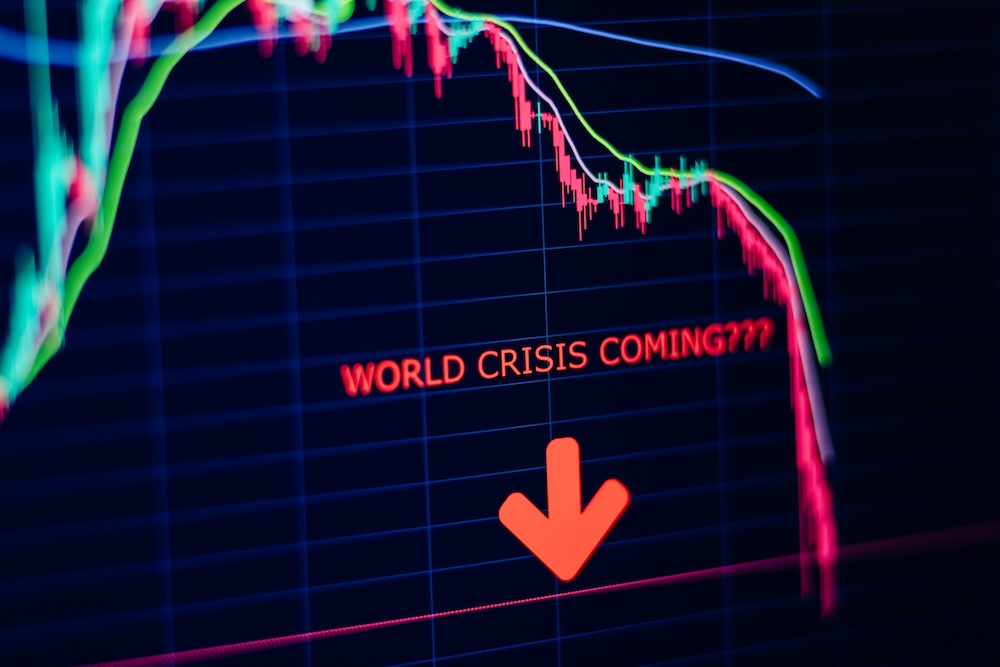The World on Edge
As 2025 unfolds, the world finds itself at a pivotal crossroads. Multiple global crises, once viewed as distant or isolated, are now accelerating simultaneously, forcing governments, businesses, and everyday people into a high-stakes triage situation. Climate systems are faltering, global economic alliances are fracturing under the weight of aggressive trade wars, and political institutions are straining under unprecedented pressure. The decisions made—or not made—in the next year could determine the course of the next century. This is not just turbulence. This is a global emergency.
1. Climate Collapse: Coral Reefs and Beyond
The Earth’s natural warning systems are flashing red. The 2023–2025 global coral bleaching event has already affected 84% of the world’s coral reefs. These vibrant ecosystems, vital to ocean life and coastal protection, are collapsing under rising ocean temperatures.
The stakes are existential:
- Coral reefs support over 25% of all marine life.
- Their loss threatens food security for hundreds of millions.
- They act as natural storm barriers for vulnerable coastal cities.
Beyond reefs, we are seeing broader environmental destabilization: more severe droughts, wildfires, extreme weather, and species extinction events. Scientists warn that some climate tipping points—such as oceanic collapse and Arctic permafrost thaw—could become irreversible within this decade.
The window for decisive climate action is closing fast. Without immediate, large-scale interventions, nature’s collapse could trigger social, economic, and geopolitical chaos on a scale humanity is unprepared for.
2. Trade Wars and Global Economic Fragmentation
Simultaneously, the global economy is undergoing severe stress. In early 2025, the United States escalated tariffs dramatically under emergency powers, imposing a 10% baseline tariff on all imports and up to 245% on Chinese goods. China retaliated with its own heavy tariffs.
The ripple effects:
- Sharp stock market declines rivaling the COVID-era crash.
- Supply chain disruptions pushing up costs for businesses and consumers.
- Central banks caught between battling inflation and preventing recessions.
The IMF has downgraded global growth projections to just 2.8%, while U.S. consumer confidence has plunged by 32% since January.
Economic fragmentation—where countries turn inward, weaponize trade, and weaken multilateral institutions—threatens to undo decades of global integration. If unresolved, it could slow innovation, deepen poverty, and spark further geopolitical instability.
3. Democracy on the Brink
The world’s largest democracies are also under strain. In the United States, sweeping policy changes on immigration, trade, and civil service protections are raising alarms about institutional stability. Critics warn of eroding checks and balances, politicized governance, and a weakening of the civil service’s independence.
Elsewhere, populist movements are gaining ground, often fueled by economic anxiety and distrust in traditional institutions.
The warning signs are clear:
- Increased polarization and political violence.
- Growing public distrust in elections and governance.
- Attempts to erode judicial and media independence.
Democracy is resilient, but not invincible. Without active civic engagement, strong institutions, and global support for democratic norms, backsliding could accelerate in ways that are difficult to reverse.
4. Which Emergencies Are Fixable — and Which Aren’t?
Triage Analysis:
| CRISIS | ACCELERATING | FIXABLE | AT RISK OF IRREVERSIBLE |
|---|---|---|---|
| Coral Bleaching (Climate) | ✅ Very fast | Barely | ✅ Very high risk |
| Trade War (Economic) | ✅ Fast | ✅ Time-sensitive | ❌ |
| U.S. Democratic Norms Erosion | ✅ Moderate | ✅ Still possible | ❌ |
| Global Conflicts (Ukraine, etc.) | ✅ Moderate | ✅ Difficult but possible | ❌ |
Key insight: Climate collapse is closest to becoming irreversible. Economic and political crises, while serious, can still be corrected—but only if urgency is matched with action.
5. What the Next 12 Months Could Look Like
Best-Case Path:
- Major economies pull back from escalating tariffs.
- Climate action ramps up with emergency global summits and real emissions cuts.
- Democratic institutions withstand pressure, bolstered by public engagement.
Worst-Case Path:
- Coral reef die-offs worsen, triggering broader marine ecosystem collapse.
- Trade wars deepen, sparking a global recession.
- Democratic erosion continues, leading to increased authoritarianism and unrest.
A Call to Action
Triage means we cannot fix everything at once—but we can prioritize wisely.
If 2025 teaches us anything, it’s that global systems are deeply interconnected. Protecting nature, preserving open economies, and defending democracy are not separate battles. They are different fronts of the same fight: to ensure that human civilization thrives rather than collapses.
The next year is not just critical. It may be defining. The future isn’t written yet—but time to write it is running out.







